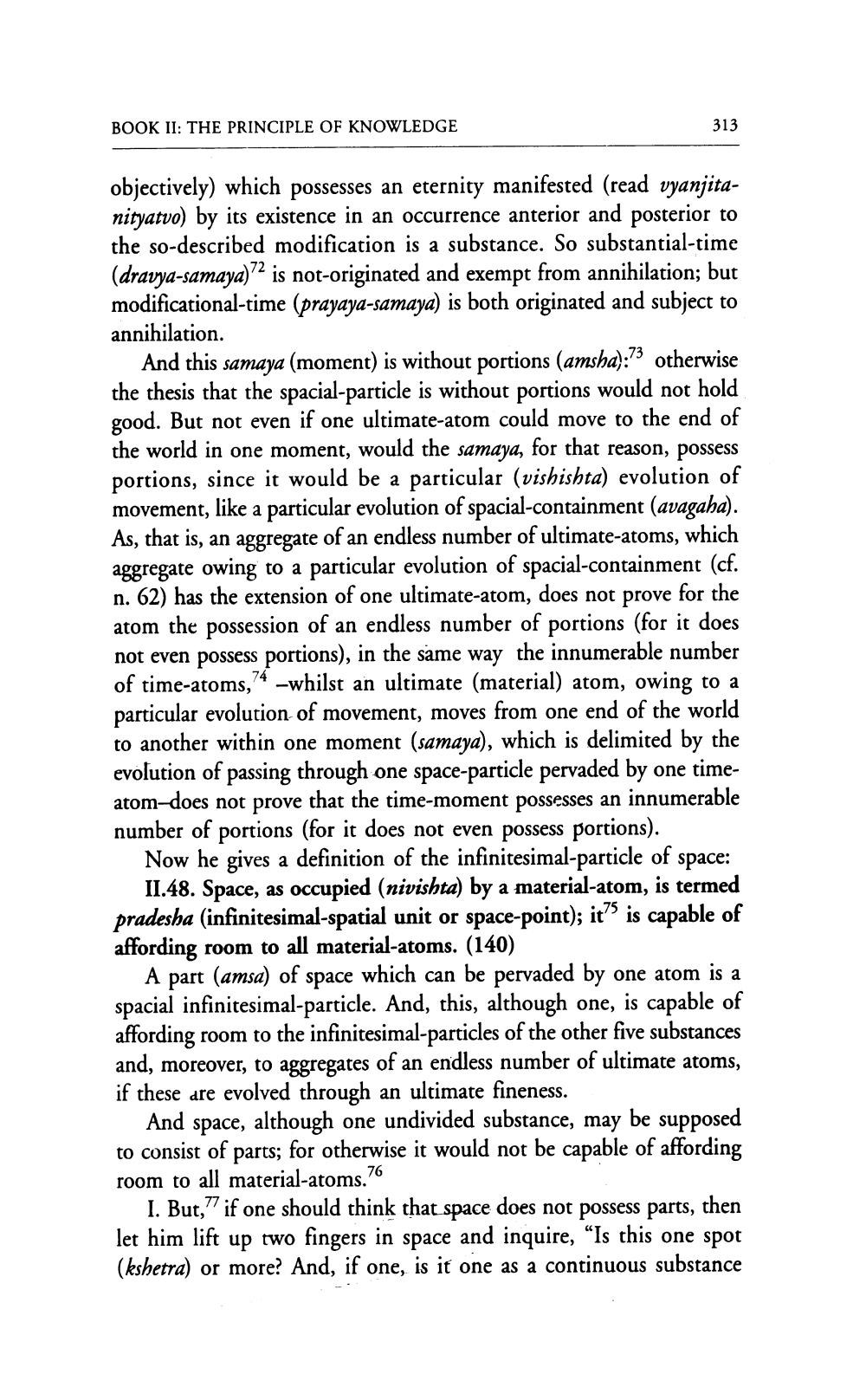________________
BOOK II: THE PRINCIPLE OF KNOWLEDGE
313
objectively) which possesses an eternity manifested (read vyanjitanityatvo) by its existence in an occurrence anterior and posterior to the so-described modification is a substance. So substantial-time (dravya-samaya)72 is not-originated and exempt from annihilation; but modificational-time (prayaya-samaya) is both originated and subject to annihilation.
And this samaya (moment) is without portions (amsha):73 otherwise the thesis that the spacial-particle is without portions would not hold good. But not even if one ultimate-atom could move to the end of the world in one moment, would the samaya, for that reason, possess portions, since it would be a particular (vishishta) evolution of movement, like a particular evolution of spacial-containment (avagaha). As, that is, an aggregate of an endless number of ultimate-atoms, which aggregate owing to a particular evolution of spacial-containment (cf. n. 62) has the extension of one ultimate-atom, does not prove for the atom the possession of an endless number of portions (for it does not even possess portions), in the same way the innumerable number of time-atoms,74 -whilst an ultimate (material) atom, owing to a particular evolution of movement, moves from one end of the world to another within one moment (samaya), which is delimited by the evolution of passing through one space-particle pervaded by one timeatom-does not prove that the time-moment possesses an innumerable number of portions (for it does not even possess portions).
Now he gives a definition of the infinitesimal-particle of space:
II.48. Space, as occupied (nivishta) by a material-atom, is termed pradesha (infinitesimal-spatial unit or space-point); it is capable of affording room to all material-atoms. (140)
A part (amsa) of space which can be pervaded by one atom is a spacial infinitesimal-particle. And, this, although one, is capable of affording room to the infinitesimal-particles of the other five substances and, moreover, to aggregates of an endless number of ultimate atoms, if these are evolved through an ultimate fineness.
And space, although one undivided substance, may be supposed to consist of parts; for otherwise it would not be capable of affording room to all material-atoms.76
I. But, if one should think that space does not possess parts, then let him lift up two fingers in space and inquire, “Is this one spot (kshetra) or more? And, if one, is it one as a continuous substance




